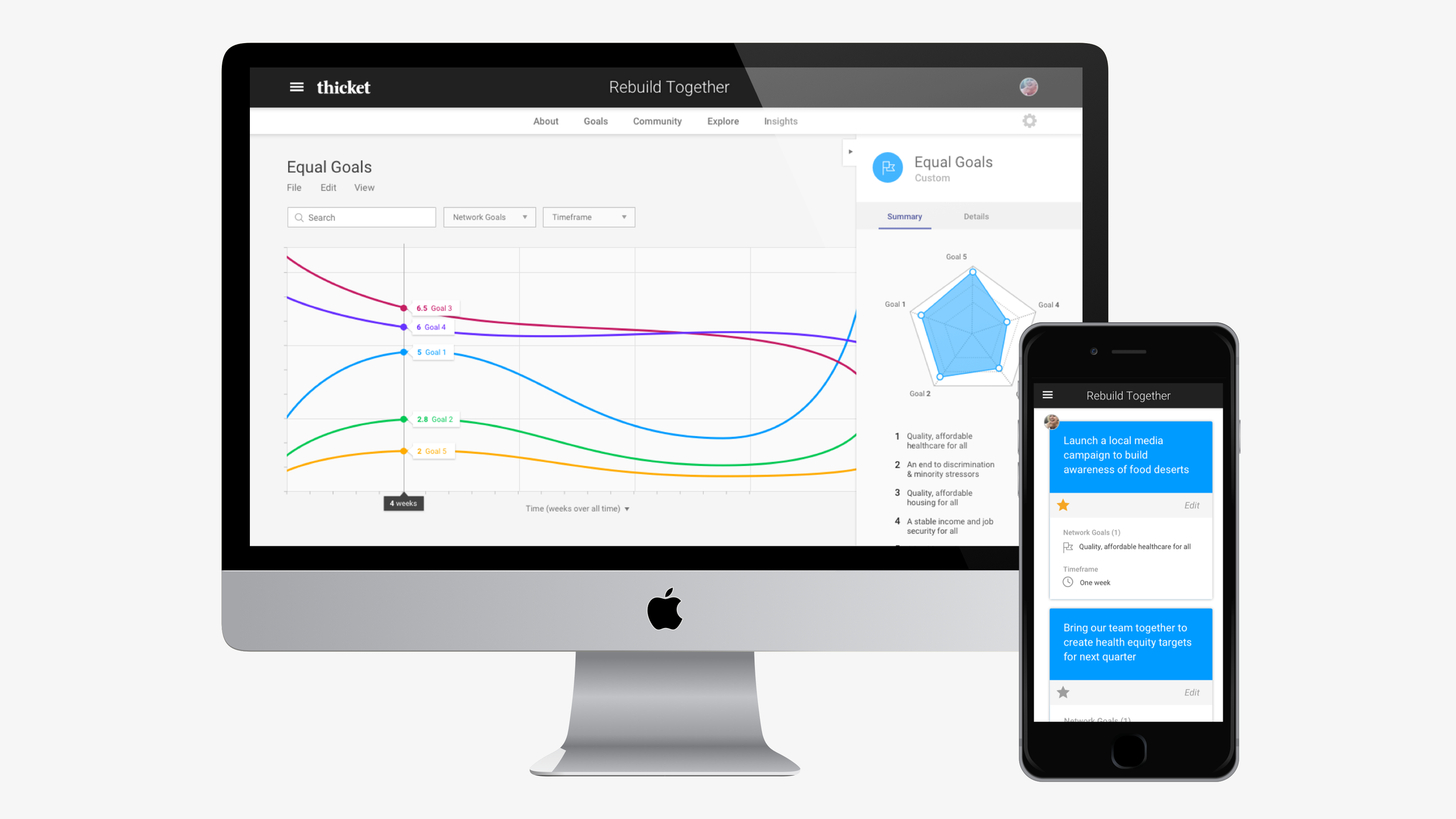Thicket Labs
From policy summits to rapid disaster response, Thicket Labs proved that collaborative intelligence could thrive in the most complex environments. Its platform, The Possibility Engine™, convened hundreds of stakeholders, surfaced actionable insights in real time, and helped partners—from Google to city governments—make decisions that stuck. The results spoke for themselves, drawing investor attention within its first three years.
Motivation
Thicket Labs was founded to reimagine how communities, organizations, and governments make decisions — moving from top-down directives to participatory, data-driven intelligence. We wanted to prove that a collaborative platform could both gather complex stakeholder input and turn it into actionable strategy for issues as varied as public health, climate resilience, and urban planning.
Approach
Product Vision & Development: Designed and launched The Possibility Engine™, a patented collaborative intelligence platform that supported stakeholder engagement, scenario-driven strategy planning, and cross-sector decision-making.
Scalable Pilots: Partnered with civic agencies, nonprofits, universities, and global brands to test the platform in live environments, applying it to strategic planning, impact measurement, real-time resource matching, and rapid response campaigns.
Participatory Design: Embedded facilitation and feedback loops into every deployment, ensuring culturally relevant, consensus-driven solutions.
Data to Action: Delivered real-time analytics and visualizations that turned complex datasets into clear, actionable decision paths.
Real-World Pilots
The Possibility Engine™ was deployed in high-stakes, complex decision-making contexts across sectors:
Health Equity Design Lab (Robert Wood Johnson Foundation & Center for Global Policy Solutions): Convened 250+ thought leaders; 100% of participants reported improved consensus-building and integration of diverse perspectives; 90% said the resulting policy agenda targeted the most impactful systemic levers.
BRIDGES Collaborative (University of Toronto): Achieved an 85% cost reduction and saved nearly 1,000 staff hours in healthcare innovation network reporting, while improving cross-program collaboration.
Google Hyperlinked Study: Measured an 11% increase in interest in computer science careers among girls who viewed the series, with evidence of long-term influence on career choices.
Real-Time Resource Matching (City in Canada, with McGill University): Delivered 96% optimal fit in shelter assignments for homeless individuals, significantly improving speed and quality of placements.
Lead With Love (Movement Strategy Center): Launched within 72 hours of concept, securing 500+ pledges from 42 states in the first two days.
Wide Adoption in Early Pilots
Diverse Client Base: Attracted corporate, government, and nonprofit adopters — from city governments to tech companies like Google, to large-scale public health coalitions.
Proven Performance Gains: Demonstrated solutions that were 6× faster, 85% cheaper, and 96% higher quality than existing approaches.
Broad Engagement: Engaged thousands of stakeholders across multiple geographies and industries, validating the platform’s adaptability and scalability.
Market Validation: Generated initial revenue through paid pilots; received overwhelmingly positive user feedback on usability, impact, and adaptability.
Investor Interest: By the end of 2020, Thicket had drawn inquiries from mission-aligned investors to fund a growth phase.
Leadership & Impact
As co-founder and CEO, I led product vision, secured and managed flagship partnerships, oversaw technical and design teams, and facilitated high-profile engagements. This included securing multi-year partnerships, translating pilot insights into product improvements, and representing the company in industry and investor forums.
Closure
In early 2021, a combination of outside forces made it impossible to sustain operations. Despite strong proof of concept and investor interest, Thicket closed later that year. The lessons, tools, and methodologies developed during this period continue to influence my participatory strategy work today.






